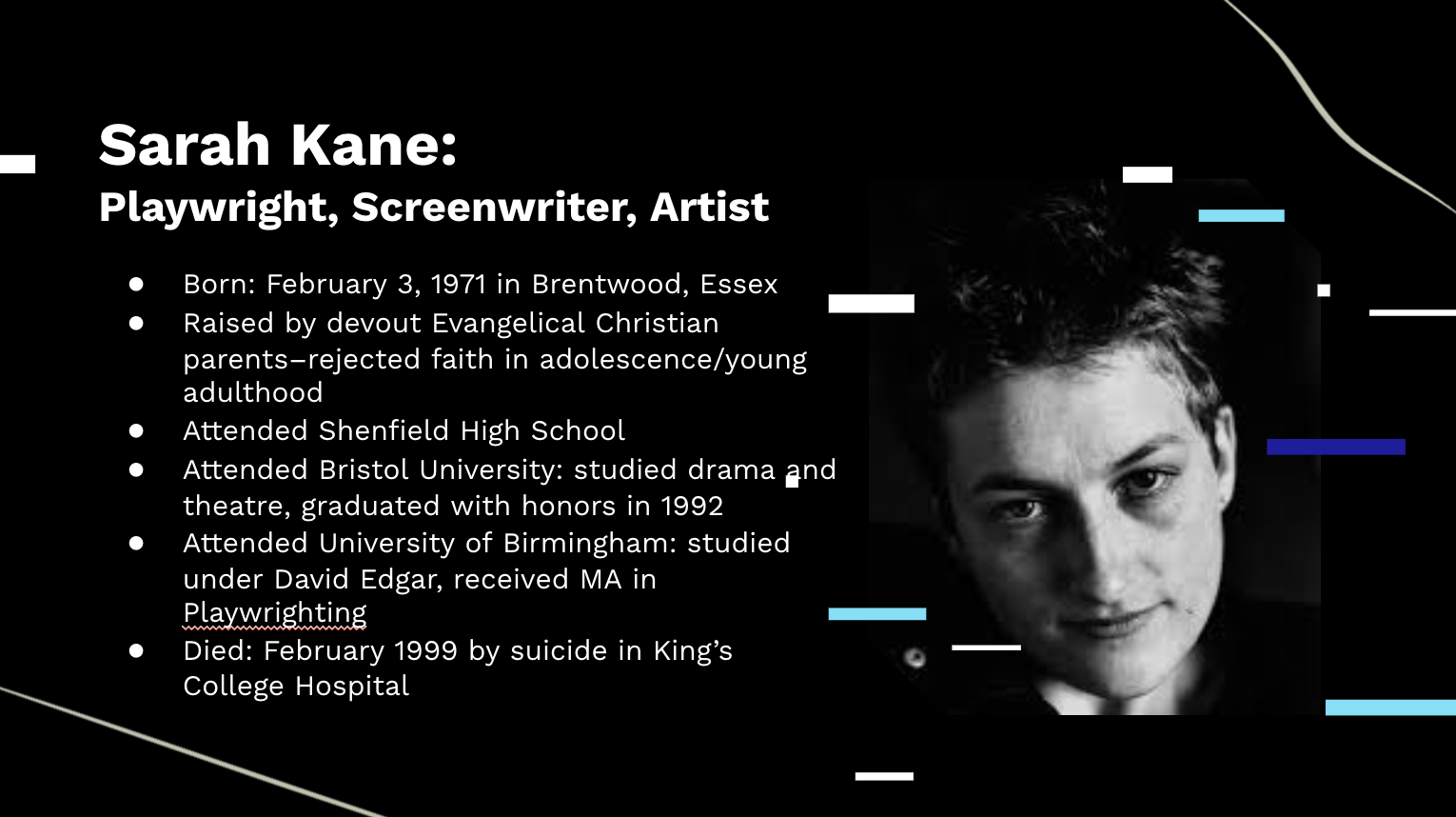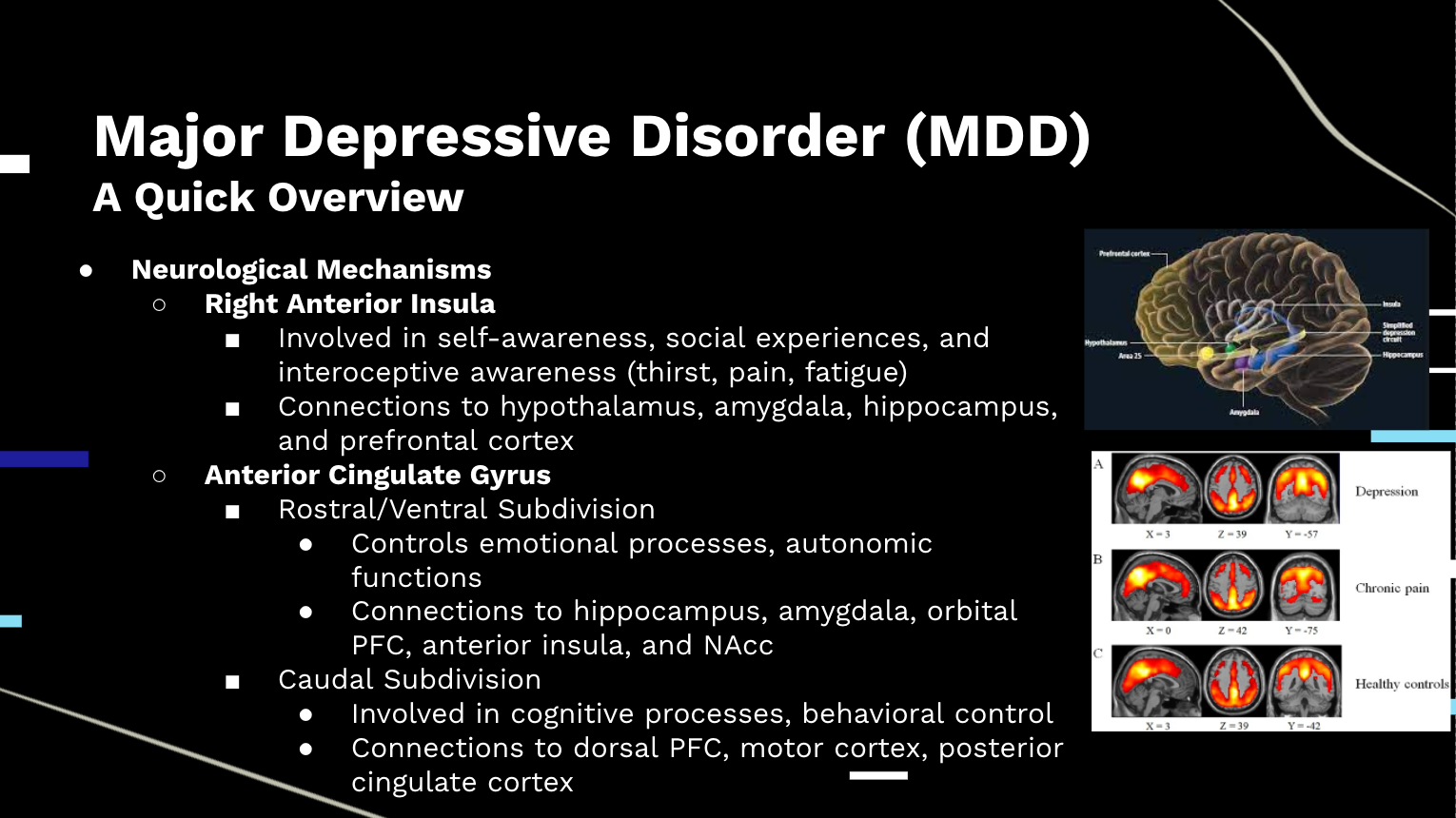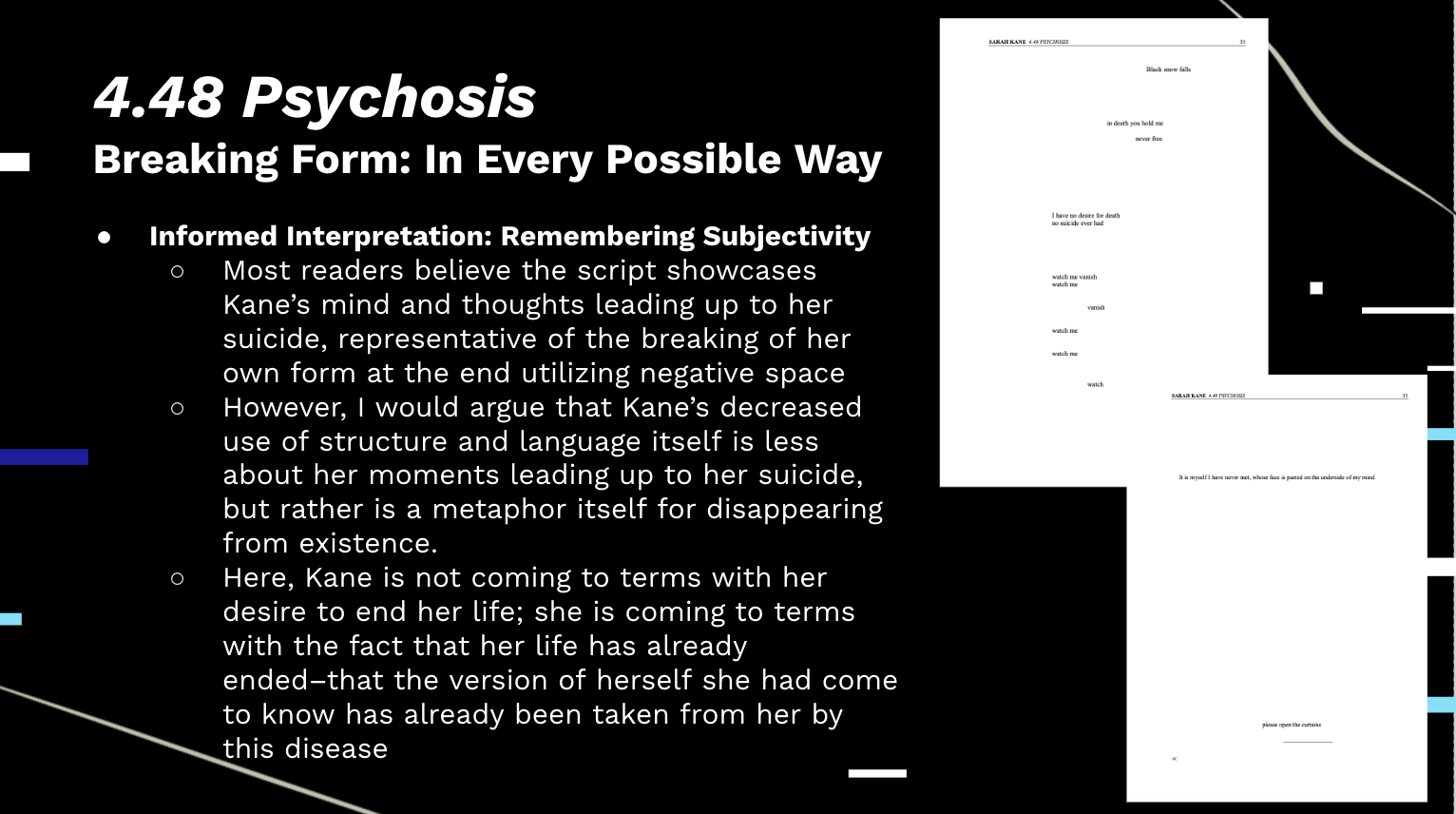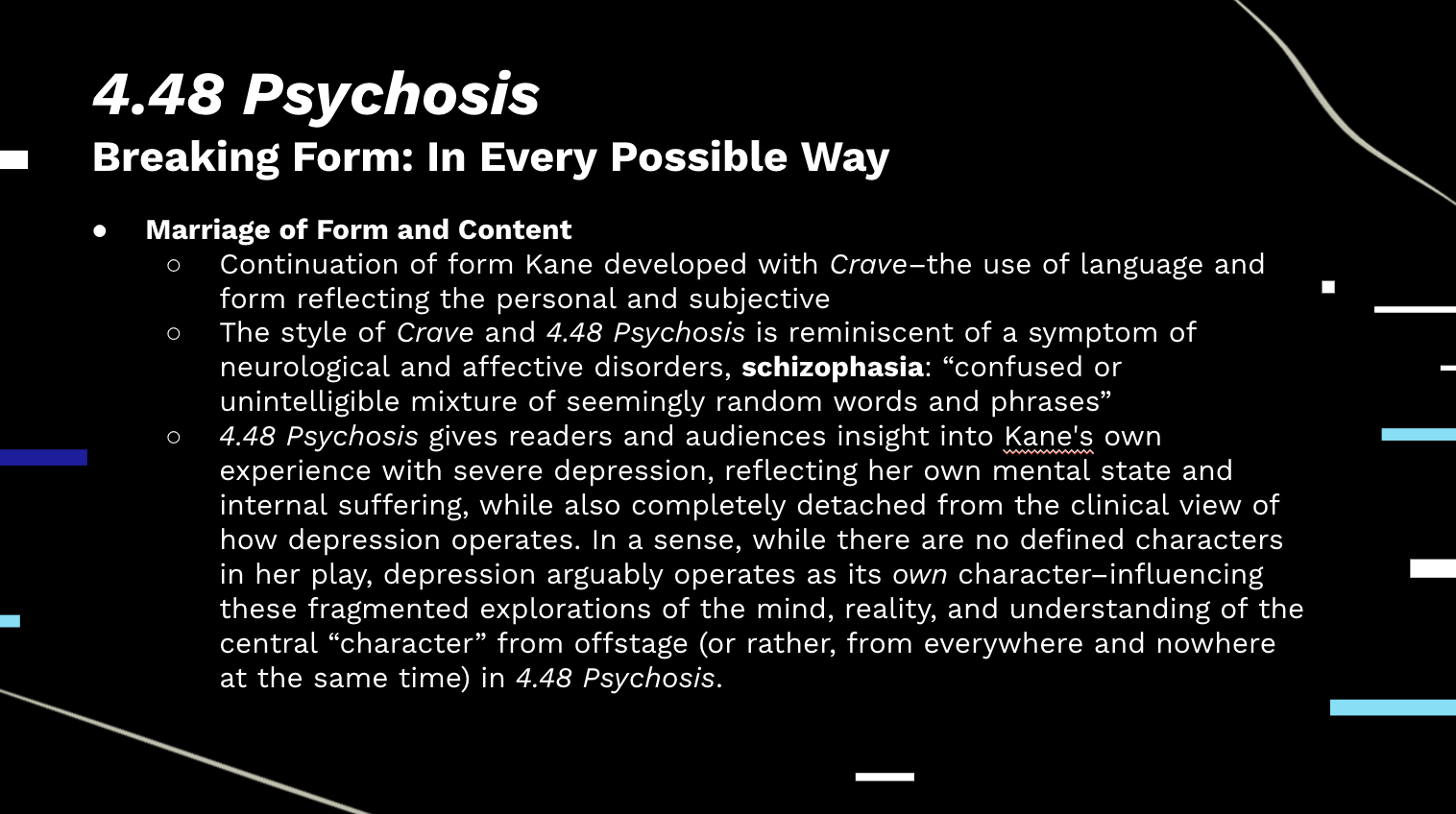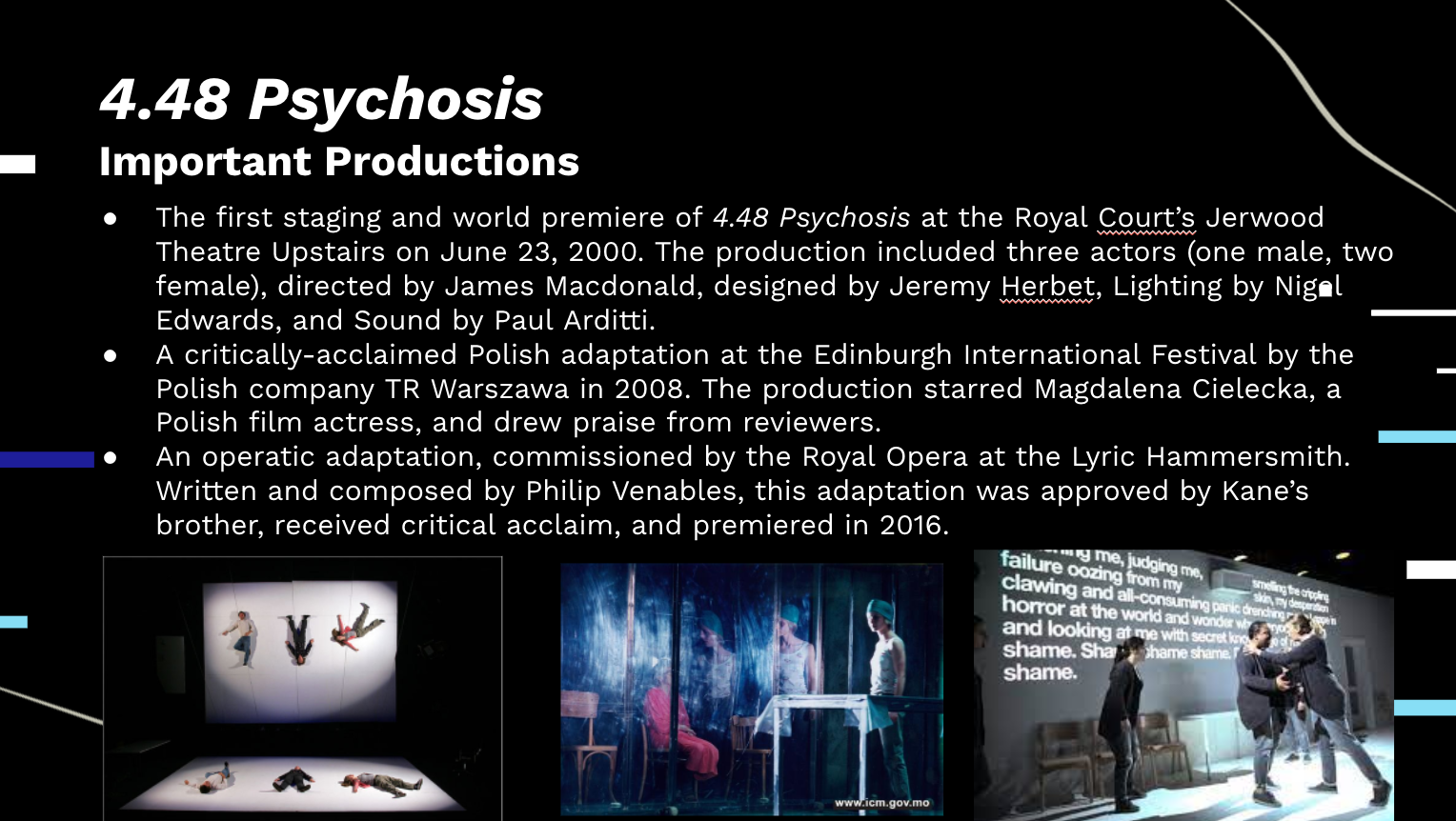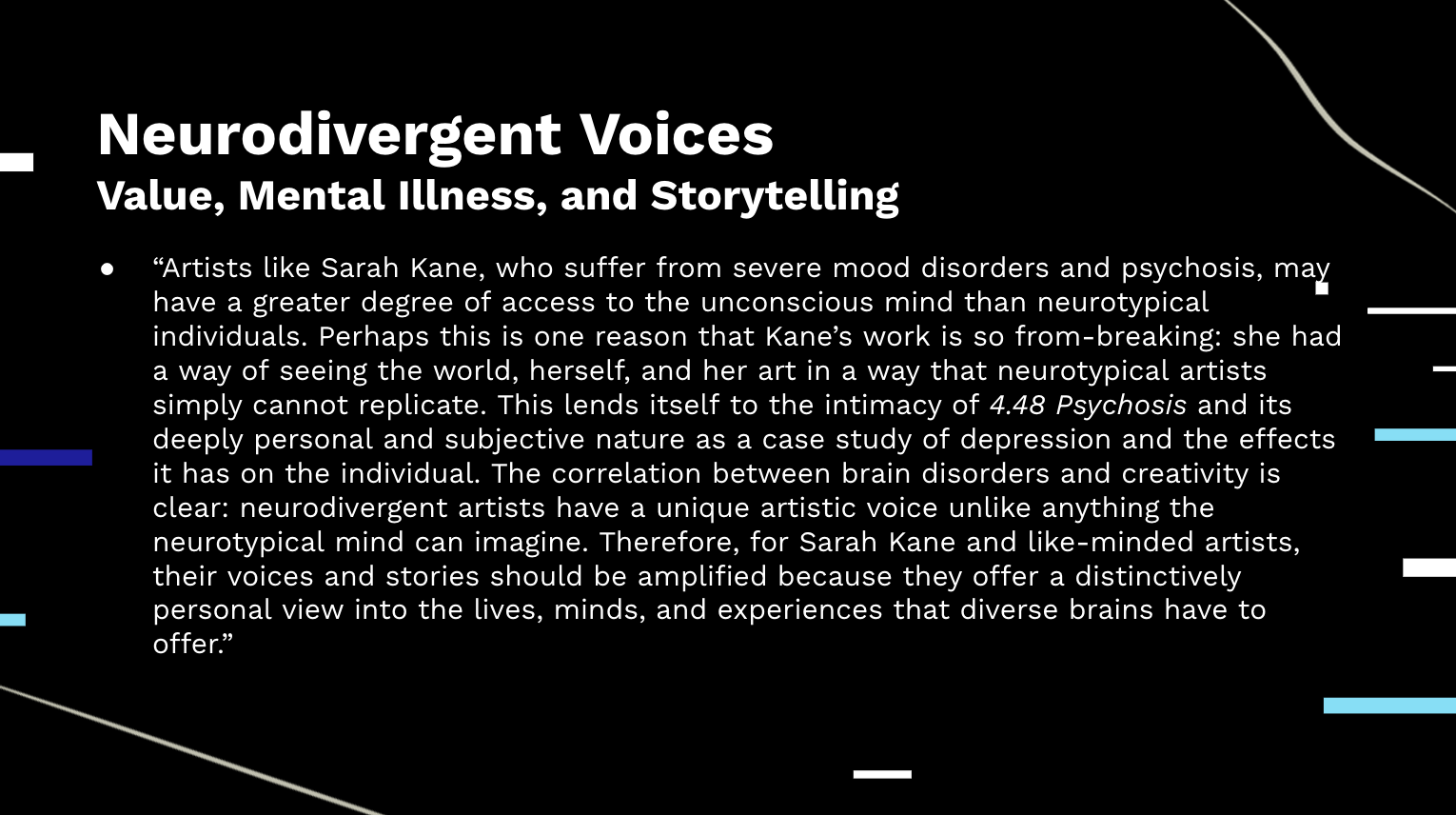
4.48 Psychosis: Sarah Kane’s Influence on Postmodernist Theatre and the Influence of Neurodivergent Storytelling in Dramatic Form
ASDS THR 504: Theatre History and Dramatic Literature II
Take a look at samples from my research presentation!
⇩
Course research presentation for THR 504: Theatre History II @ Pace University; presented by Parker Jenkins
Abstract: Sarah Marie Kane, a British playwright, screenwriter, and theatre artist, shocked the theatre industry with her graphic, unapologetic, and controversial works–Blasted, Skin, Cleansed, Phaedra’s Love, Crave, and 4.48 Psychosis. One of the forerunners of postmodernist theatre, Kane redefined modernist drama and ushered in a new era of form-breaking theatre, introducing abstract poeticism and lyricism into her work to create an intimate, in-your-face exploration of abuse, torture, and mental illness through graphic descriptions and depictions of violence–both internal and external–on stage. Kane suffered from severe depression and psychosis her entire life, paving the way for her most personal and form-braking play at the conclusion of her life: 4.48 Psychosis. Through her use (or lack thereof) of abstract structure to depict the inner turmoil that severe depression brings, Kane offers a unique view of mental illness, marriage of content and form, and the impact of neurodivergent voices on what theatre can–and should–be.
This project was developed at ASDS’s THR 504: Theatre History II course as a semester-long research project focused on the evolution of theatrical performance and literature throughout specific moments of history. This presentation was a part of the requirements of a 15-minute presentation supported by a 20 page research paper and 1-page “Quick Look” handout.
